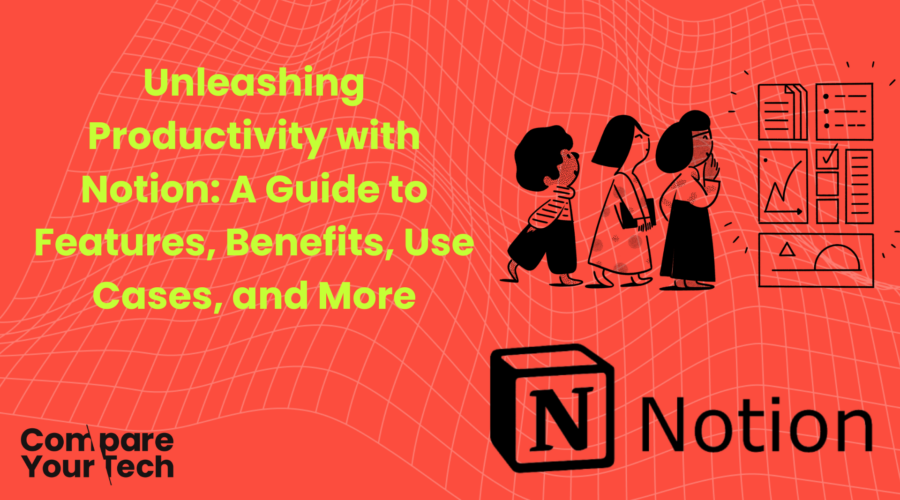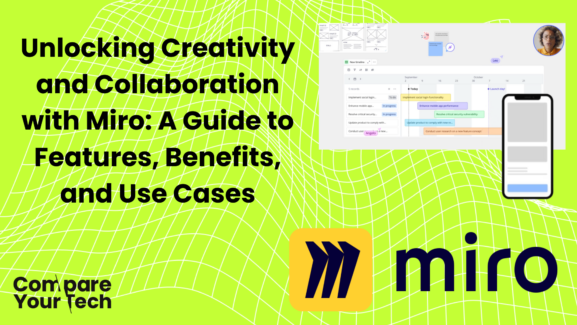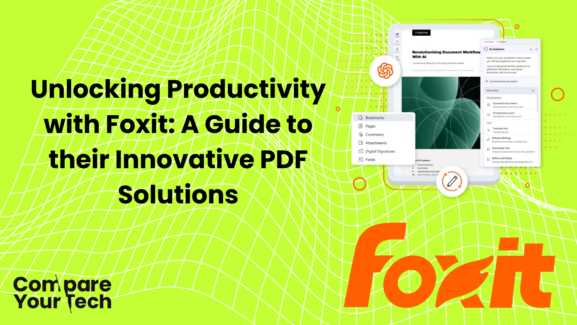Unleashing Productivity with Notion: A Guide to Features, Benefits, Use Cases, and More
Notion has become a game-changer in the world of productivity tools, redefining how individuals and teams collaborate, plan, and execute their ideas. Whether you’re a solo entrepreneur, a project manager, a student, or part of a large organisation, Notion’s flexibility and intuitive design make it a one-stop solution for all your organisational needs. In this blog, we’ll dive deep into what makes Notion a powerhouse, explore its features, analyse its use cases, and provide actionable insights to help you get the most out of this incredible tool.
What is Notion?
Notion is an all-in-one workspace designed to streamline the way you manage tasks, organise information, and collaborate with others. It combines the functionality of note-taking apps, project management tools, wikis, and databases into a single, customisable platform. Launched in 2013, Notion has rapidly grown into a global productivity solution with a loyal user base ranging from individuals to Fortune 500 companies.
With its robust capabilities, Notion offers unparalleled flexibility. It acts as a digital Swiss army knife, empowering users to design unique workflows, centralise data, and maintain a structured overview of their professional and personal lives. Its cloud-based platform ensures that information is accessible anytime, anywhere, providing consistent and reliable service.
Key Features of Notion
1. Customisable Workspace
Notion allows you to create a workspace tailored to your specific needs. With drag-and-drop functionality, you can structure pages, subpages, and content blocks to match your workflow. The ability to nest pages within pages gives you a hierarchical structure that can mirror even the most complex systems. This flexibility enables users to:
- Create dashboards that provide a snapshot of their day or week.
- Organise client projects with distinct folders and subfolders.
- Design visually appealing and fully functional knowledge hubs.
2. Rich Content Blocks
At the heart of Notion’s design are its blocks. These are versatile building elements that can represent text, images, videos, checklists, code snippets, equations, embeds, and more. Blocks are:
- Highly Flexible: They can be rearranged, styled, and combined in countless ways.
- Interactive: Users can create toggle lists, collapsible headings, and linked references for better navigation.
- Dynamic: Embed external tools like Figma prototypes, Loom videos, or Google Maps directly into a page.
3. Databases and Tables
Notion’s databases provide powerful tools to organise and track information. These can be customised to include:
- Multiple Views: Toggle between Kanban boards, lists, timelines, and calendar views.
- Filters and Sorting: Apply custom filters and sort data to find exactly what you need.
- Linked Databases: Cross-reference information across different databases for relational functionality.
Use cases include:
- Tracking recruitment pipelines with candidate profiles.
- Managing editorial calendars with content status and deadlines.
- Building personal CRMs with detailed contact logs.
4. Templates
Notion offers a wide array of pre-built templates to get you started quickly. Whether you’re creating a content calendar, a class schedule, or a team roadmap, templates can save time and provide inspiration. Advanced users can create and share their own templates to standardise workflows across teams.
5. Collaboration Tools
Team members can collaborate in real time, leave comments, and share feedback directly within pages. Collaboration features include:
- Mentions: Tag colleagues to bring attention to specific tasks or discussions.
- Comments: Add threaded comments for in-context discussions.
- Activity Logs: View recent changes to track updates and revisions.
6. Integrations
Notion seamlessly integrates with tools like:
- Google Workspace: Embed Google Docs, Sheets, and Slides.
- Slack: Send notifications and updates to team channels.
- Zapier: Automate workflows by connecting Notion with thousands of apps.
- API: Build custom integrations to tailor Notion to your unique needs.
7. Mobile and Desktop Apps
Available on Windows, macOS, iOS, and Android, Notion ensures that you can stay productive across all devices. The offline mode allows you to continue working even without internet access, syncing changes once you reconnect.
8. Advanced Permission Controls
Manage permissions at granular levels to control who can view, edit, or comment on specific pages. Role-based access ensures that sensitive information remains secure while allowing collaborative flexibility.
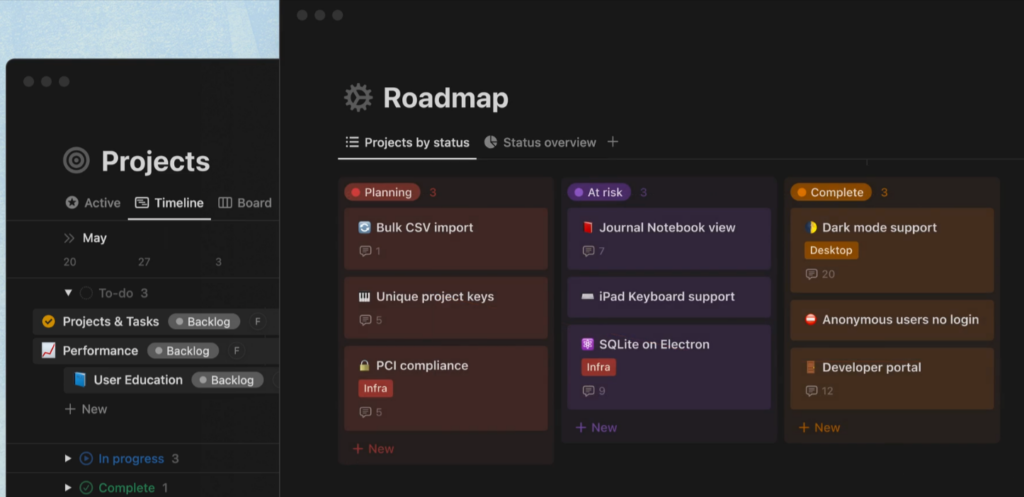
Benefits of Using Notion
For Individuals:
- Centralised Organisation: Keep all your notes, tasks, and projects in one place.
- Enhanced Focus: Simplify workflows by eliminating the need to switch between multiple apps.
- Creative Freedom: Design your workspace exactly how you want it.
- Knowledge Retention: Use Notion as a “second brain” to store and recall ideas, notes, and insights.
For Teams:
- Streamlined Communication: Collaborate seamlessly with shared workspaces and inline comments.
- Transparency: Track project progress and assign responsibilities with clarity.
- Scalability: Adaptable for teams of any size, from startups to large enterprises.
- Efficient Onboarding: Create and share resources for new team members to access.
For Enterprises:
- Data Security: Advanced permissions and admin controls ensure data privacy.
- Custom Solutions: Build complex systems using relational databases and advanced workflows.
- Cost Efficiency: Replace multiple software tools with one solution.
- Audit Trails: Maintain accountability with detailed change logs and activity tracking.
Personas: Who Should Use Notion?
1. Students and Educators
- Use Cases: Note-taking, syllabus tracking, assignment management.
- Why Notion? Its intuitive design helps students stay organised, while educators can create shared knowledge bases for their classes. Students can also build structured study guides and habit trackers.
2. Freelancers and Creators
- Use Cases: Portfolio building, client management, project planning.
- Why Notion? The flexibility to design bespoke workspaces makes it a perfect tool for managing diverse projects. Freelancers can centralise contracts, invoices, and deliverables.
3. Project Managers
- Use Cases: Task tracking, timeline creation, team collaboration.
- Why Notion? Real-time updates and database functionalities simplify complex project management. Integrating Gantt charts and progress indicators further enhances planning.
4. Entrepreneurs and Startups
- Use Cases: Business planning, CRM, investor pitch preparation.
- Why Notion? Its cost-effectiveness and scalability make it ideal for lean operations. Founders can create business models, track KPIs, and document strategies.
5. Corporate Teams
- Use Cases: Knowledge management, inter-departmental communication, onboarding.
- Why Notion? Large organisations benefit from its ability to centralise information and foster collaboration. Teams can create shared repositories for cross-functional projects.
Detailed Use Cases
1. Project Management
Create Kanban boards to track tasks, assign responsibilities, and visualise progress. Use calendar views for deadline tracking and link related databases for comprehensive project oversight. Milestone tracking and timeline dependencies enhance large-scale project execution.
2. Personal Knowledge Management
Build a second brain by organising notes, ideas, and research. Use tags and relational databases to connect information seamlessly. With backlinks and relational databases, users can interconnect concepts and resources for deep learning and discovery.
3. Content Creation Workflow
Plan, draft, and publish content using linked databases. Track progress with custom fields and automate updates with Zapier integrations. Embed external drafts or media, like Figma designs, directly into Notion pages.
4. Team Knowledge Base
Centralise company policies, SOPs, and project documentation in one searchable, collaborative hub. Use permission controls to maintain confidentiality where necessary. Annotate and version-control critical documents.
5. CRM System
Track leads, manage client relationships, and automate follow-ups by integrating Notion with tools like Mailchimp and Salesforce. Relational databases ensure that contacts, deals, and tasks stay interconnected.
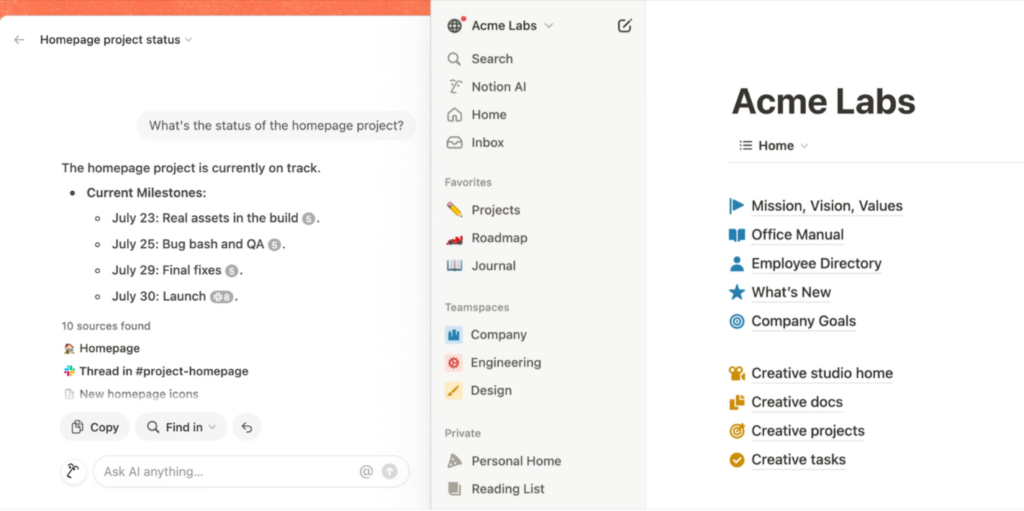
Why Notion is a Great Solution
- Versatility: From note-taking to managing enterprise-level databases, Notion adapts to your needs.
- Ease of Use: The user-friendly interface ensures that even beginners can create powerful systems.
- Community Support: An active community shares templates, tutorials, and tips to help you maximise productivity.
- Cost-Effective: With its free plan for personal use and affordable pricing for teams, Notion delivers exceptional value.
- Robust Infrastructure: Regular updates and a dedicated support team ensure a seamless user experience.
Examples in Notion
- Content Calendar: Plan blog posts, track deadlines, and visualise content strategy in a single dashboard. Assign collaborators and link drafts for streamlined workflows.
- Personal Dashboard: Combine to-do lists, habit trackers, and financial budgets for a holistic view of your life. Integrate daily journals and reflections for personal growth.
- Team Workspace: Manage a product development lifecycle with connected databases for sprints, bugs, and user stories. Use shared roadmaps for strategic alignment.
Getting Started with Notion
- Sign Up: Create a free account on Notion’s website.
- Explore Templates: Browse through Notion’s extensive template gallery.
- Start Small: Begin with a basic workspace and gradually add features as you become more comfortable.
- Leverage Community Resources: Join forums, watch tutorials, and download shared templates to fast-track your learning.
- Experiment: Use the sandbox approach—try different layouts, workflows, and integrations to find what works best.
Conclusion
Notion is more than just a productivity tool; it’s a platform that empowers you to bring order to your digital life. Its unmatched flexibility, extensive features, and diverse use cases make it an indispensable tool for individuals and teams alike. Whether you’re managing personal goals, leading a team project, or running a business, Notion’s capabilities will help you achieve more with less effort.
Ready to transform the way you work? Start exploring Notion today and unlock your productivity potential!

